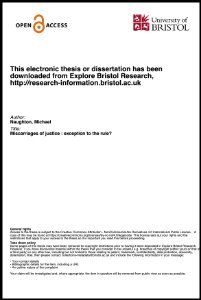By The Philadelphia District Attorney's Office, Data Lab
The Conviction Integrity Unit (“CIU”) was established in 2018 by District Attorney Larry Krasner. The CIU’s predecessor, the Conviction Review Unit (“CRU”), which was established in 2014, had operated for a number of years with only a small staff and a narrow mandate. The CRU only reviewed claims of actual innocence, and rarely undertook investigations into whether new evidence existed that could prove those claims. Cases where the defendant had confessed were largely excluded from consideration, as if false confessions (which occur in a quarter of DNA exonerations nationally) were always reliable. Today, the CIU is an independent unit within the Philadelphia District Attorney’s Office, reporting directly to the District Attorney, and involved in one out of every ten homicide exonerations in the country. When District Attorney Krasner transformed the unit from the CRU to the CIU, he immediately tasked it with a broader mandate: not only to review past convictions for credible claims of actual innocence but also to review claims of wrongful conviction and secondarily to consider sentencing inequities. Early in his first term, District Attorney Krasner merged the CIU with the Office’s Special Investigations Unit (“SIU”). The two units share a common focus on investigating official misconduct, and their cases frequently overlap. However, as the CIU and SIU personnel have grown and expanded their caseloads, the units were separated in the summer of 2020 to better accommodate each unit’s mission
The CIU’s mission is to ensure that justice is served by prosecutors at the Philadelphia District Attorney’s Office and to remedy the Office’s wrongful convictions. Pennsylvania prosecutors have limited post-con viction discretion in general and they have no legal authority to set aside convictions in the interest of justice. Since CIU prosecutors cannot unilaterally dismiss an existing conviction or free anyone we believe to be wrongfully incarcerated, the CIU makes a recommendation to the court that the petitioner be granted a new trial whenever its independent investigation leads it to conclude that a conviction lacks integrity. If warranted, the CIU will move to withdraw the charges against the petitioner or reduce the charges so that an equitable sentence can be imposed. In cases that are ultimately withdrawn or dismissed, the CIU will investigate and prosecute the actual perpetrator where feasible. However, given the inherent difficulties involved in investigating decades-old crimes where the original investigation was either botched or inadequate, identifying the real perpetrator and bringing that person to justice may be impossible. To date, the Philadelphia Police Department has declined to re-open and re-investigate old cases following exonerations. For example, Walter Ogrod was exonerated of a 1988 murder in 2020. While investigating the case, the CIU identified two alternate suspects. As of almost a year after Ogrod’s exoneration, however, police had not even begun the process of re-opening the underlying murder case. Additionally, the CIU believes that conviction integrity is more than simply fixing past mistakes and exposing misconduct. It also requires policies and processes to prevent future injustices. With this aim, the CIU helps craft office-wide policies and trainings designed to reduce the number of future wrongful convictions.
This report encompasses exonerations, commutations, and sentencing adjustments from January 1, 2018 through June 15, 2021. This report includes data on cases submitted to the CIU, active investigations, cases declined or closed, and cases awaiting review that are accurate as of May 31, 2021. Experts who have opined on the issue of best practices for conviction integrity units agree that in order to increase public understanding of and trust in such units, offices should publish annual reports detailing the results of their conviction and case reviews and actions taken. This report is the first report issued by the CIU under District Attorney Krasner and is a first-term report, rather than an annual report. Although annual reports were contemplated, they were postponed as a result of multiple factors ,including lack of resources, internal technology deficits, case load, and the COVID-19 pandemic.
Philadelphia District Attorney's Office, Data Lab. 2021. 47p.



